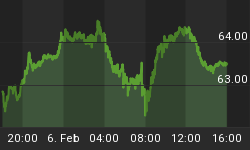With the LIBOR manipulation scandal and the collapse of commodity brokers MF Global and PFG Best, what is the average investor to do?
Lauren Lyster discusses the answer in a Capital Account interview with Simon Mikhailovich, co-manager of Ediesis Capital.
The topic is "Death of Price Signals and the Birth of a Faith-Based Financial System"
The entire interview is worth a complete play. The key portion starts right around the 21:30 mark in which Mikhailovich explains ....
The financial system is so interconnected and so highly correlated, different asset classes that deemed to be uncorrelated or low-correlated, have become highly-correlated and are essentially all sitting in one systemic basket.
The way to address the problem is to look for baskets that are not in the financial system. You have to look for physical assets, hard assets, that are not financial instruments, not only the assets themselves are not in the financial system, but the way you own them is not related to the financial system.
In other words, direct physical ownership of non-financial assets. ... The main one is gold.
Physical gold is the answer because gold is the most liquid, most ubiquitous material, with a worldwide market.
It should owned physically outside the financial system and hopefully with geographic diversification so you can assess liquidity during tough times. We have started a fund to enable people to do just that.
Hold Physical Gold Outside the Financial System
To escape the "faith-based initiative" physical gold is the answer.
Mikhailovich proposes one way. Taking physical possession is another, Goldmoney is a third.
I believe a portion of one's assets belongs in physical gold. What portion depends on many things, including comfort level of holding gold and ability to not panic in strong corrections.
As noted in previous posts: For the sake of full disclosure, my physical precious metals holdings are now entirely at GoldMoney and I have an affiliate relationship with them.
If anyone wants information about GoldMoney or investing in physical gold and silver in general, please Email Mish















